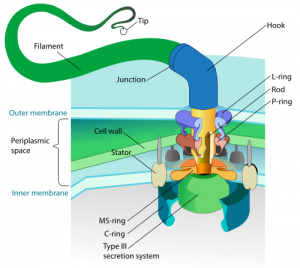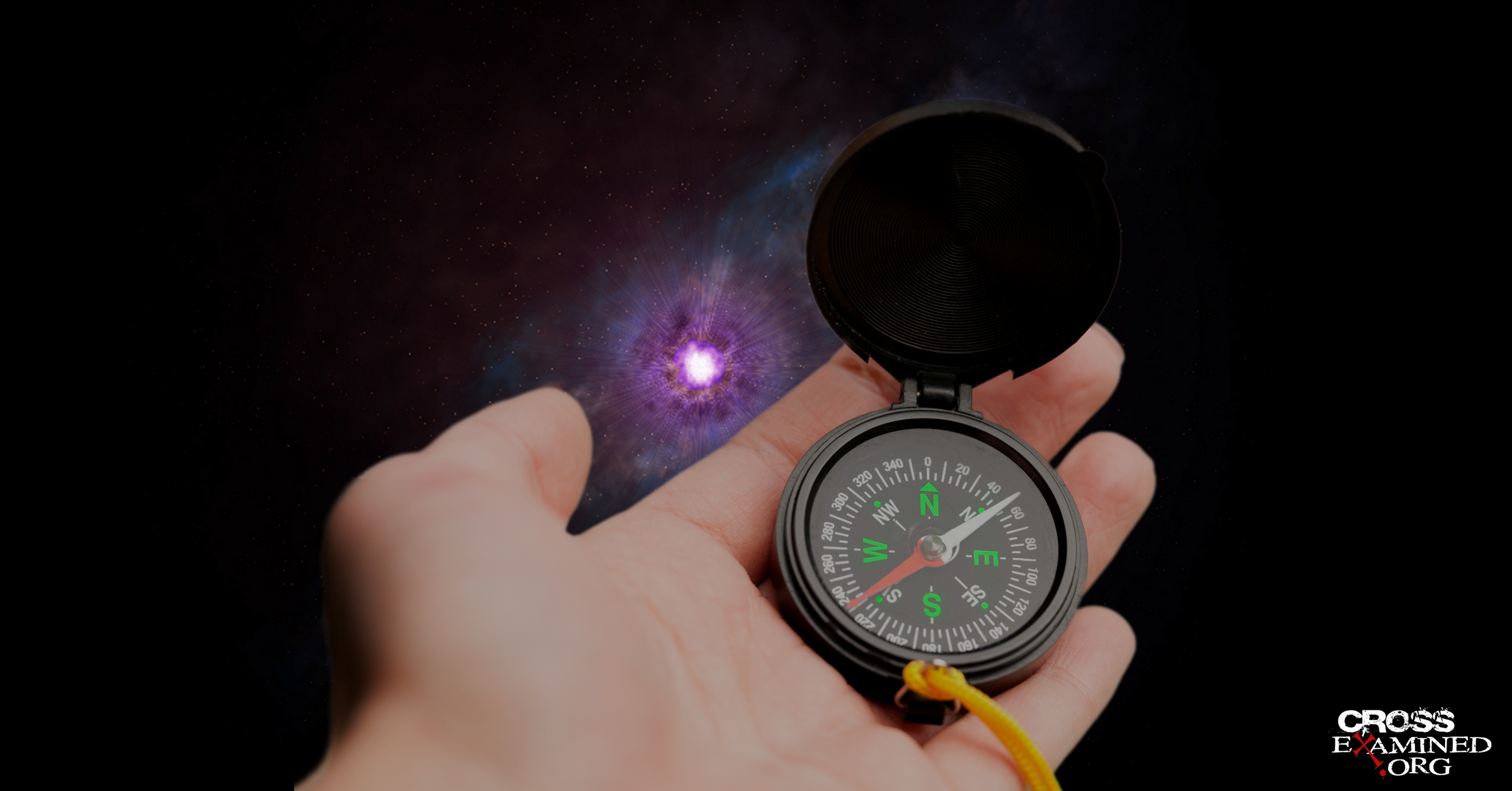Circular reasoning is generally understood to be fallacious. The reason for this is that circular arguments assume what they purport to prove. At least one premise in a circular argument depends upon the truth of the conclusion, making the argument lose any justifying force. For in order to accept the relevant premise, one would have to already believe the conclusion. But if one already believes the conclusion then one has no need for the argument, and if one does not already believe the conclusion then the argument will not yield any grounds for belief.
Despite the seeming obviousness of what I have just said, it nonetheless remains startlingly popular to claim that circular reasoning is, in some cases, acceptable and — even worse — ultimately unavoidable. This claim is common among those Christian apologists known as presuppositionalists (although it is, by no means, limited to them). It is not my purpose here to critique circular reasoning in general or to offer a non-circular alternative, although I have done this elsewhere.[1] My purpose here is to critique one popular argument which purports to show that circular reasoning is unavoidable.
The argument is typically phrased something like this: “You must use reason in order to prove reason.” The thrust of the argument seems to be that since one cannot prove reason apart from reason, circularity is simply inescapable.[2] Although I don’t encounter this argument much in scholarly literature (at least not in this form) it is rather popular among internet presuppositionalists. And while I generally prefer to discuss scholarly issues, the pervasiveness of this argument coupled with the fact that I am not aware of any direct interaction with it moves me to write this article in reply.[3]
In this article, I intend to briefly explain my motivation for addressing this argument. After that, I will try to disambiguate the argument and clarify both what it means and how one might respond. After disambiguating the argument, I shall argue that it either assumes a theory of epistemic justification which can be rejected or else fails to recognize an important distinction between two types of usage. Either way, circular reasoning can be avoided.
Raising the Stakes
Before engaging the argument directly, it will be helpful to provide some motivation for examining it at all. After all, why should the argument concern us? Is it really a problem if all justification is circular in the end? Or perhaps we should not even try to justify the reliability of reasoning. Perhaps it is simply a fundamental assumption of all philosophical inquiry which needs no justification.
It would be an understatement to say that many philosophers are content to say that belief in the reliability of reason can only be justified in a circular way.[4] Still, others take the essential reliability of reason to be a fundamental axiom which is incapable of justification and needs none. But I have never found such answers to be satisfactory. I have never been content to suppose that I should require justification for my beliefs down to the bottom level but then give the foundational beliefs a free pass. Such a move seems completely arbitrary and even inconsistent. If our most foundational beliefs are unjustified, then I take this to entail that all beliefs which depend on them for their justification are likewise unjustified. I suspect that many readers feel the same way.
But this conviction forces those who hold it to face the original argument. For if there is no non-circular means of justifying foundational beliefs, then we may well have to face the conclusion that none of our beliefs are justified. For those wishing to avoid such a gloomy conclusion, there is a strong motivation for addressing the original argument.
Clarifying the Issue
Having provided some motivation, let’s turn to assess the merits of the argument. Roughly we are concerned with the claim that one must use reason to justify reasoning. Stated thusly, the claim is quite incoherent. Reasoning is a deliberative cognitive process. It is not a proposition. It is not the sort of thing which can be true or false. As such, reasoning itself needs no justification since it is an action rather than a belief. Imagine how absurd it would be to demand justification for walking, or for driving, or for swimming. Such activities need no justification precisely because they are activities rather than propositions. Once we have understood that only propositions require justification due to their potential to be false, it becomes evident that the act of reasoning does not need justification.
Sometimes the argument is phrased as a question: How do you know that your reasoning is valid? But stated in this way, the argument is guilty of a category error. Validity is not a property of reasoning but rather a property of arguments.[5] To say that one’s reasoning is valid makes as little sense as saying that one’s driving is valid. Validity simply doesn’t apply to activities.
But perhaps it will be objected that I have missed the point. After all, I am taking advantage of very poorly worded versions of the argument. And that is, of course, quite true. As I observed earlier, this argument is not as prominent among scholars as it is among those on the internet. But I do think that addressing these muddled versions of the argument is an important task because it helps us to clarify what is and what is not at issue. Moreover, it forces those who would use these problematic formulations of the argument to be more precise. Finally, pointing out the incoherence of these simplistic formulations of the argument can also serve to rob them of their rhetorical force.
Strengthening the Argument
So let me attempt to reconstruct a more sensible version of the argument. It seems to me that when someone says that we must use reason to justify reasoning, they mean that one must use their ability to reason in order to defend the proposition that reasoning is reliable. One must, in effect, assume that their ability to reason is reliable. Certainly, this is a much more robust argument. But to answer it, we must seek still greater clarification.
Before turning to answer the robust version of the argument, we must ask what is meant by the phrase “reason is reliable.” Taken quite literally it would mean that the cognitive process of reasoning itself somehow yields justification for beliefs by virtue of being reliable. Taken in this way, the argument is saying that one must assume that reasoning yields justification for beliefs by virtue of being reliable in order to reach the conclusion that reasoning yields justification for beliefs by virtue of being reliable.
Reliabilism vs. Evidentialism
Thus construed, the argument assumes a reliabilist epistemology. Reliabilism is a theory of epistemic justification according to which beliefs are justified if they have been produced by a reliable process. If this is what the proponent of the argument is claiming, then we may happily agree with him. It is not at all controversial that reliabilism is guilty of epistemic circularity. This is a well-known fact which is admitted by reliabilists and critics of reliabilism alike.
Notice, however, that if this is what the argument is trying to establish, then it assumes reliabilism and reaches the uncontroversial conclusion that reliabilism leads to circularity. However, not all philosophers are reliabilists. Reliabilism’s main contender is known as evidentialism. According to evidentialism, the justification that any subject has for a belief is always relative to the evidence which that subject possesses for that belief.[6] Evidentialism seeks justification in evidence – not in reliable processes. Hence, the argument considered above will simply not work against evidentialism because it assumes a theory of justification which the evidentialist rejects.[7] As such, one need only reject reliabilism in order for the argument to fail to establish that circularity is unavoidable.
Functional Usage vs. Justificatory Usage
Nevertheless, evidentialists still do use reason to arrive at justified beliefs. Does this indicate that there is still some circularity on the part of the evidentialist? In order to answer this, we will need to be clear on what is meant by using reason. There are two quite distinct ways in which we use things to justify our beliefs. We use things in a justificatory sense and we also use things in a functional sense. Something is used in a justificatory sense when it is offered as a rational justification for a belief. Something is used in a functional sense when it is employed as a tool in the process of offering rational justification. Crucially, nothing about a functional usage contributes to the rational justification for a belief. It is simply a means of helping a subject see that justification for what it is. The upshot is that functional usage doesn’t even have the potential to be circular because circularity can only apply to justification.
We can see the distinction more clearly through an illustration. Imagine that I am debating a friend over the existence of pencils. I am trying to convince him that pencils actually exist. Moreover, suppose that this debate is mediated by means of letters. In my attempt to convince my friend that pencils are real, I offer him numerous syllogistic arguments in support of the existence of pencils. Now let’s say that I use a pencil to write out these arguments for him. In this case, it would be quite correct to say that I used a pencil to justify my belief in the existence of pencils. But the usage was entirely functional. At no point did I use the proposition that pencils exist as a premise in an argument which concluded that pencils exist. The premises in my arguments are what I am using to justify my belief in pencils. Therefore, the justification of my belief in pencils is not circular even though I used a pencil to justify the belief. This is because the usage of the pencil was functional rather than justificatory.
This illustration is fairly analogous to what I have in mind when I say that evidentialists “use reason” to justify their beliefs. While it is true that we must think critically — we must reason — in order to justify our beliefs, we are not using reason as the rational basis for any of our beliefs. The evidence provides the justification for our beliefs and reason is just the process of evaluating it. At no point does the process of reasoning itself justify a belief. Reasoning without evidence from which to reason gets us nowhere. Reason is not some mystical ability which leads us to truth in and of itself. Reason requires to facts to work with. It is simply a necessary means for reaching justified beliefs. Critically, since we are not attributing justification to the reasoning process itself, our use of it is not justificatory. It is functional. As such, our use of reason when seeking to justify our beliefs is not circular.
Summary and Conclusion
In this article, I have assessed the claim that epistemic circularity is unavoidable since one must, in fact, use reason to justify their beliefs about the truth-finding nature of reasoning. I have determined that the argument is usually framed in an unclear and incoherent way. When it is made intelligible, it assumes epistemic reliabilism and, therefore, it is forceless against evidentialism. Any attempt to press the argument against evidentialism will beg the question against evidentialism. Moreover attempts to modify it to face evidentialism on the basis that evidentialists “use reason” fail to acknowledge the distinction between functional and justificatory usage. Since evidentialists only “use reason” in a functional sense, they are not guilty of epistemic circularity.
It has not been my purpose here to assess all arguments for epistemic circularity or to provide a detailed account of a non-circular theory of knowledge. Others more capable than myself have done this elsewhere.[8] My purpose has been minimal. I have merely attempted to show that a single popular argument for the inescapability of circular reasoning does not succeed as long as evidentialism is a viable option.
Notes
[1] See my video “Internalism Versus Externalism” available here https://www.youtube.com/watch?v=fxOg5zKUYmU&t=12s
[2] For a cluster of arguments along these lines see Sye Ten Bruggencate’s video “How To Answer The Fool (full film)” available here: https://www.youtube.com/watch?v=aQKjUzotw_Y&vl=en&t=329
[3] In particular conversations with Seth Bloomsburg and Tyler Vela convinced me of the need for such an article.
[4] Examples include William Alston, Alvin Plantinga, Michael Bergmann, and Andrew Moon
[5] To be sure, we sometimes speak of valid and invalid reasoning. But this sort of language refers not to cognitive processes, but rather to the validity of the logical inferences that the reasoning follows.
[6] Earl Conee and Richard Feldman, Evidentialism, Oxford University Press, 2004, Pg. 83
[7] See Berit Brogaard, “Phenomenal Dogmatism, Seeming Evidentialism and Inferential Justification,” in Believing in Accordance with the Evidence, Springer International Publishing, 2018, Kevin McCain editor, Pg. 55
[8] Examples include Richard Fumerton, Metaepistemology and Skepticism, Rowman & Littlefield, 1995; Timothy McGrew and Lydia McGrew, Internalism and Epistemology, Routledge, 2007; Paul K. Moser, Knowledge and Evidence, Cambridge University Press, 1989; Brie Gertler, Self-Knowledge, Routledge, 2011
Recommended resources related to the topic:
How Philosophy Can Help Your Theology by Richard Howe (DVD Set, Mp3, and Mp4)
When Reason Isn’t the Reason for Unbelief by Dr. Frank Turek DVD and Mp4
Counter Culture Christian: Is There Truth in Religion? (DVD) by Frank Turek: http://bit.ly/2zm2VLF
__________________________________________________________________________________________________________________________________________________
David Pallmann is a student at Trinity College of the Bible and Theological Seminary. He is also a member of the Society of Evangelical Arminians and directs the YouTube Apologetics ministry Faith Because of Reason.
Original Blog Source: https://cutt.ly/0mhHTXY













